



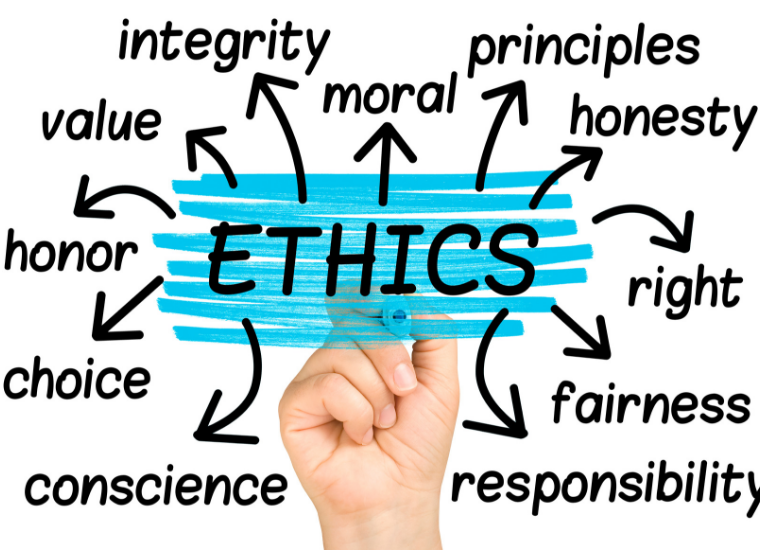
When it comes to GS- IV or Ethics paper, keywords play the most important role in fetching easy marks. Self awareness and morality of a candidate should reflect in the paper in the form of phrases and terminologies apart from presenting balanced viewpoints on various issues. This paper is to test whether the candidate’s attitude and approach to issues related to transparency, integrity, probity and conduct fits well in public life as a potential bureaucrat. In this article we shall be decoding the most important terminologies, concepts and phrases pertaining to Ethics that can help aspirants in framing good answers. So, without any further ado, let’s begin!
Conscience is the sense of right and wrong that governs a person's thoughts and actions. Conscience describes two things – what a person believes is right and how a person decides what is right. More than just ‘gut instinct’, our conscience is a ‘moral muscle’.
It is the quality of being honest and having strong moral principles and values in one’s actions even when no one is watching.
Morals refer to beliefs, principles, and values about what is right and what is wrong. And “Morality” refers to standards or principles concerning the distinction between right and wrong, derived from a universal code of conduct based on rationality.
The virtue of Rationality means the recognition and acceptance of “reason” as one's only source of knowledge, one's only judge of values and one's only guide to action.
It means a commitment to the principle that all of one's convictions, values, goals, desires and actions must be validated by a process of ethical reasoning.
Ethical decision-making refers to the process of evaluating and choosing among alternatives in a manner consistent with ethical principles. In making ethical decisions, it is necessary to perceive and eliminate unethical options and select the best ethical alternative.
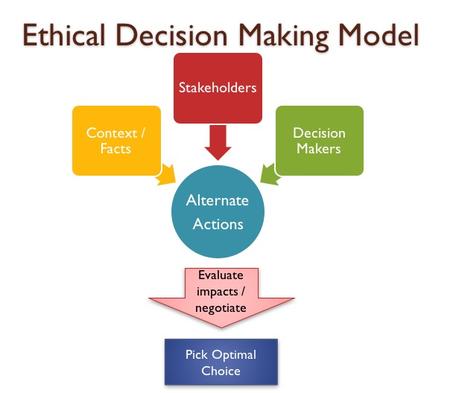
Moral absolutism is the belief there are universal ethical standards that apply to every situation. Stealing, for instance, might be considered to be always immoral, even if done for the well-being of others (e.g., stealing food to feed a starving family), and even if it does in the end promote such a good.
Apathy is a lack of feeling, emotion, interest, or concern about something. It is a state of indifference, or the suppression of emotions such as concern, excitement, motivation, or passion. In public service indifference towards others issues and others problems leads to systemic lapses and poor delivery of services to people.
Empathy is the capacity to understand and resonate with the experiences of other people. Empathy is a vital skill for the public sector. Seeing our work through a lens of empathy makes us better at our jobs and helps us fulfill our purpose which is in this case is public service.
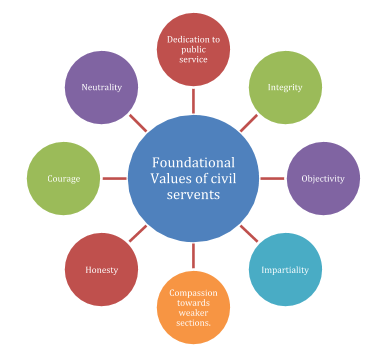
Red tape is excessive regulation or rigid conformity to formal rules that is considered redundant or bureaucratic and hinders or prevents action or decision-making. It is usually applied to governments, corporations, and other large organizations. Red tape generally includes filling out paperwork, obtaining licenses, having multiple people or committees approve a decision and various low-level rules that make conducting one's affairs slower, more difficult, or both.
It is a strong and sometimes blind adherence to a particular party, faction, cause, or person. An impartial civil service, aloof from political considerations, in this hyper-partisan political environment is the cornerstone of efficient public service delivery.
Objectivity is the propensity to base decisions and perceptions on exterior information
instead of on subjective aspects, like private emotions, beliefs, and experiences. To maintain objectivity Civil servants should be impartial, open-minded, guided by evidence, and willing to hear different viewpoints. They should be ready to acknowledge and correct mistakes. Civil servants should be loyal to the government of the day and be politically neutral in their day-today functions.
Summum bonum is a Latin expression meaning the highest or ultimate good. It was introduced by the Roman philosopher Ciceroto denote the fundamental principle on which some system of ethics is based — that is, the aim of actions, which, if consistently pursued, will lead to the best possible life.
Nishkam Karma or self-less or desireless action, is an action performed without any expectation of fruits or results. It is the central message of the Bhagavad Gita and the foundational value of public service.
Deontology is the normative ethical theory that the morality of an action should be based on whether that action itself is right or wrong under a series of rules, rather than based on the consequences of the action. It is sometimes described as duty, obligation, or rule-based ethics.
Consequentialism is a class of normative, teleological ethical theories that holds that the consequences of one's conduct are the ultimate basis for any judgment about the rightness or wrongness of that conduct. Thus, from a consequentialist standpoint, a morally right act (or omission from acting) is one that will produce a good outcome.
According to the principle of double effect, sometimes it is permissible to cause a harm as a side effect (or “double effect”) of bringing about a good result even though it would not be permissible to cause such a harm as a means to bringing about the same good end.

It is the ability to withstand adversity and bounce back and grow despite difficult events. Being resilient means you are ready to face down all the challenges of future with great finesse.
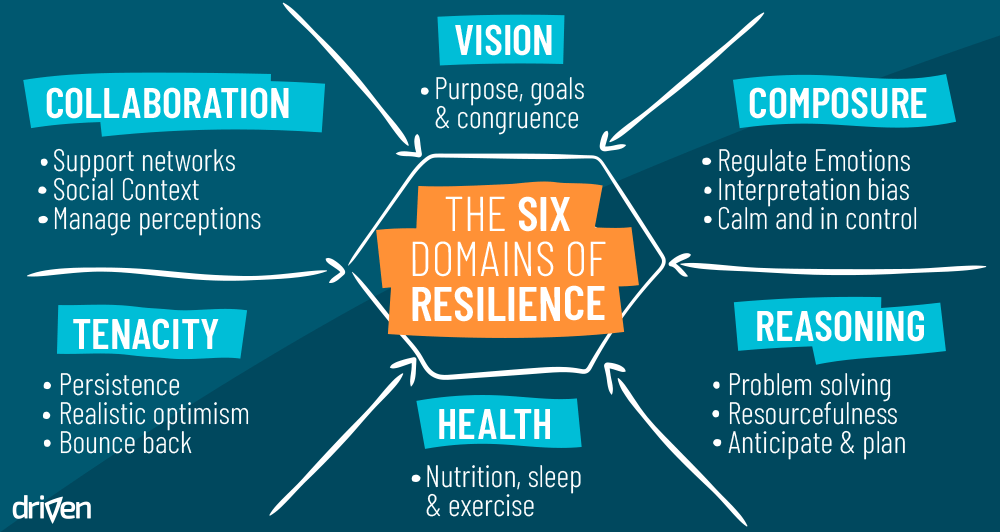
Firmness is being resistant to externally applied pressure and is marked by or indicating the tone and resiliency of the person. It is used to denote the quality of showing determination or resolution.
Emotional intelligence refers to the ability to identify perceive, control, evaluate and manage one’s own emotions. An emotionally intelligent Civil Servant succeeds in managing emotions in anxiety-provoking situations and gives shape to policies better.
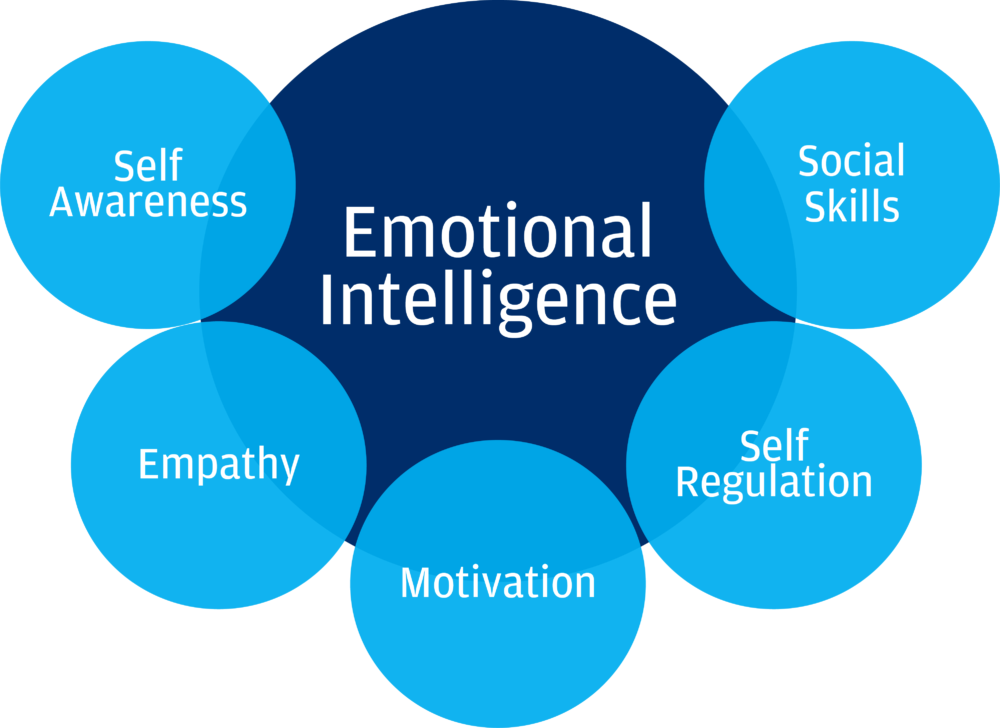
Altruism is the unselfish concern for other people—doing things simply out of a desire to help, not because you feel obligated to out of duty, loyalty, or religious reasons. It involves acting out of concern for the well-being of other people.
Hedonism is a school of thought that argues seeking pleasure and avoiding suffering are the only components of well-being.
Ethical hedonism claims that what we should do depends exclusively on what affects the well-being of individuals.
Egotistical hedonism requires a person to consider only his or her own pleasure in making choices. Conversely, altruistic hedonism says that the creation of pleasure for all people is the best way to measure if an action is ethical.
Bureaucratic inertia refers to a position in which the operations of an organization become so complex and time-consuming that they prevent the efficient operation of the organization’s core activities. In other words, bureaucratic organisations perpetuate themselves and their focus turns to abiding by established protocol rather than core activities and goals.
Moral relativism is the idea that there is no universal or absolute set of moral principles. It’s a version of morality that advocates “to each her own,” and those who follow it say, “Who am I to judge?” Moral relativism is on the opposite end of the continuum from moral absolutism, which says that there is always one right answer to any ethical question.
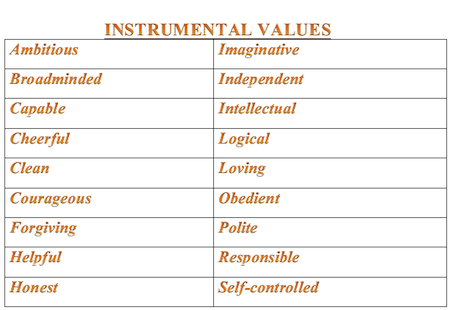
Probity in Governance is a vital need for executing the governance system and socio-economic development. It is defined as adherence to ethical and moral values like honesty. Integrity, rectitude, uprightness etc. It is the presence of procedural integrity with high standards of ethical behaviour.
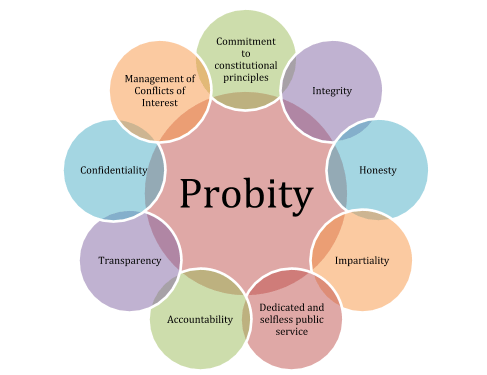
Utilititarianism in normative ethics, is a tradition stemming from the late 18th- and 19th-century English philosophers Jeremy Bentham and John Stuart Mill that an action is right if it tends to promote happiness and wrong if it tends to produce the reverse of happiness—not just the happiness of the performer of the action but also that of everyone affected by it.
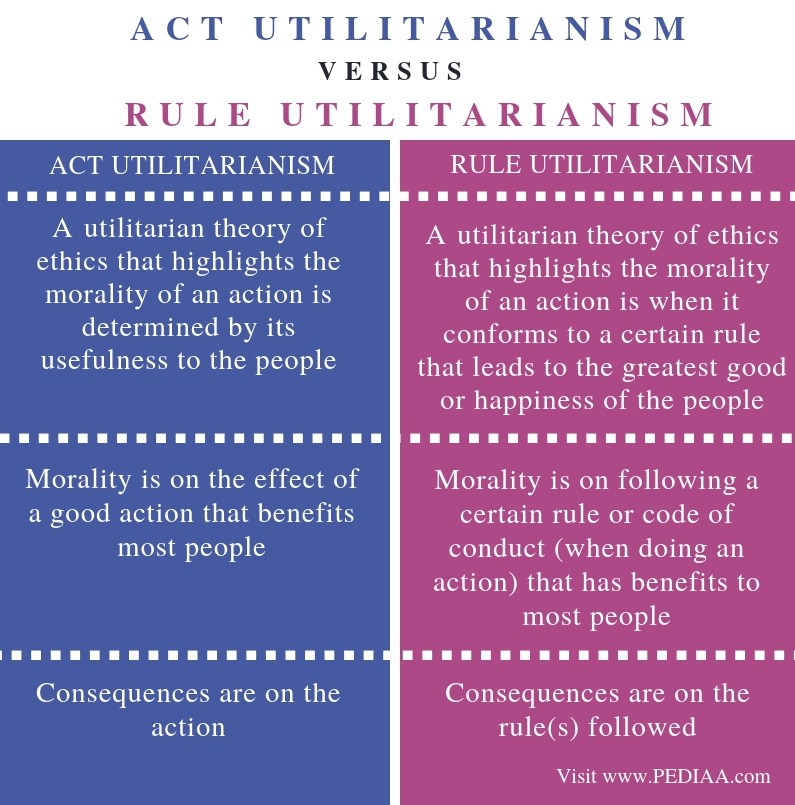
An administrator counts on the principle that all his decisions should lead to the greatest good of the greatest number. Relying on the principle means that an administrator’s reach is to most powerful as well as underprivileged classes of the society as well. After deciding to do maximum good for the society, all the decisions already become rational.
Misfeasance, nonfeasance, and malfeasance are types of failure to discharge public obligations existing by common law, custom, or statute.
Virtue ethics is a philosophy developed by Aristotle and other ancient Greeks. Virtue ethics mainly deals with the honesty and morality of a person. It states that practicing good habits such as honesty, generosity makes a moral and virtuous person. It guides a person without specific rules for resolving the ethical complexity.
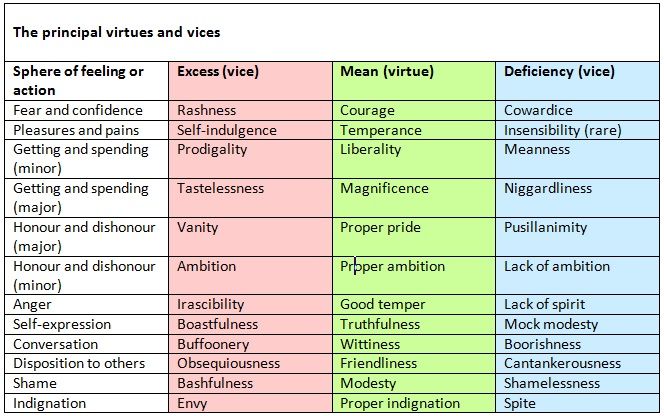
It is the quality of being convenient and practical despite possibly being improper or immoral; convenience.
‘an act of political expediency’
Intellectual integrity is the discipline of striving to be thorough and honest to learn the truth or to reach the best decision possible in a given situation. A person with intellectual integrity has a driving desire to follow reasons and evidence courageously wherever they may lead.
It is a sense of unity and of common interests and responsibilities, as developed among a group of persons closely associated in a task, cause, etc.
He whose mind is not shaken by adversity, who does not hanker after pleasures and who is free from attachment, fear and anger, is called a stage of steady wisdom. This state is known as Stithaprajnata.
.jpg)
It is the meta-ethical position that there is a universal ethic which applies to all people, regardless of culture, race, sex, religion, nationality, sexuality or other distinguishing feature, and all the time. A universal ethic is a moral system that applies universally to all of humanity, and thus transcends culture and personal whim. The source or justification of this system is variously claimed to be human nature, a shared vulnerability to suffering, the demands of universal reason, common themes among existing moral codes, or the mandates of religion.
It teaches that the greatest good is to seek modest pleasures in order to attain a state of tranquillity, freedom from fear ("ataraxia") and absence from bodily pain ("aponia"). This combination of states is held to constitute happiness in its highest form.
Humanism is a philosophy in which human interests, values and dignity predominate. It affirms the dignity and worth of all people and their ability to determine right and wrong purely by appeal to universal human qualities, especially rationality. It searches for truth and morality through human means in support of human interests, and focuses on the human capacity for self-determination. It endorses universal morality (Moral Universalism) based on the commonality of the human condition.
It is the quality of having a reaction to something or someone, especially a quick or positive reaction. Responsiveness helps you connect with people and pare down communication gap, the right response at the time, sometimes, can help avert awkward situations. Responsiveness and resilience are among the must-have skills of a public servant.
Compassion literally means “to suffer together.” It is defined as the feeling that arises when you are confronted with another’s suffering and feel motivated to relieve that suffering. Compassion for the poor, the disabled and the weaker segment of the society is the highest virtue. It actually determines how successful you are as an administrator. In fact all great administrators and leaders of society have been a compassionate person which is why they could connect to the masses.
Transparency, as one of the basic principles of good governance, implies the public insight in the work of Public Administration Bodies. Citizens should be enabled to inspect the work of the public administration as well as the availability of instruments for monitoring the decision-making process. Civil servants make all their decisions in a transparent manner. Transparency leaves no room for ambiguity. Civil services aspirants show utmost transparency in all their deeds.
In its simplest sense, decision-making is the act of choosing between two or more courses of action.
In the wider process of problem-solving, decision-making involves choosing between possible solutions to a problem. Decisions can be made through either an intuitive or reasoned process, or a combination of the two.
Civil Servants must have decision-making skill for effective implementation of policies.
A leader is a self-starter, a person around whom revolves the entire team. It is from the leader that the team draws energy, courage and the spirit to go ahead. He or she is the torch-bearer, the guide who leads the team to success. Hence, it is the quality that enables effective policy making and efficient public service delivery.
© 2025 iasgyan. All right reserved